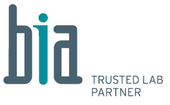As the global population steadily increases and the threat of climate change rises, our ability to combat plant pathogens promises to become an important factor in the fight for food security. The development of rapid detection and accurate diagnostic methods for plant pathogens plays an important role in fighting the spread of the diseases they cause. Nanopore sequencing technology is rapidly evolving in the past few years and shows a great potential for faster and cheaper use of high throughput sequencing (HTS) in finding new and emerging pathogens. The main objective of this project is to develop nanopore sequencing workflows to provide a rapid way for initial diagnosis and screening of plant diseases caused by pathogenic viruses and phytoplasmas.
In order to achieve it, we have set the following specific objectives:
- develop a workflow for nanopore sequencing directed to the detection and identification of viruses in economically important plants such as tomato;
- exploit the potential of nanopore sequencing and other HTS methods (e.g., Illumina) for increasing the amount and resolution of currently available phytoplasma genomic data and develop new methods for differentiation of quarantine and non-quarantine phytoplasma species;
- implement nanopore sequencing and bioinformatics pipelines for resolving complex plant diseases;
- study the virome of epidemiologically relevant environmental samples (such as irrigation water).
The project is funded as Slovenian-Croatian research project by Slovenian Research and Innovation Agency (ARIS) and Croatian Science Foundation’s (HRZZ). The Slovenian part of the project is besides ARRS financed also by Ministry of Agriculture, Forestry and Food (MKGP) and BIA d.o.o.
ARRS project ID: L7-2632
Duration: 1.9.2020 – 31.8.2023




